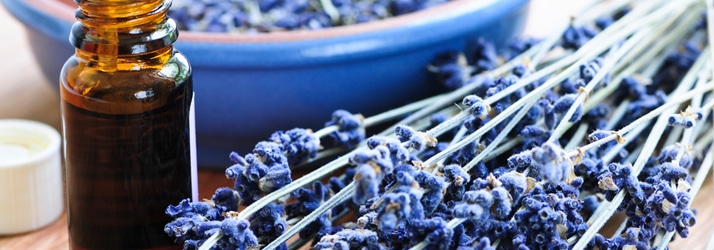Healing Power of Plants

Boost immunity, enhance sleep, fight colds: Mother Nature’s medicine cabinet can do all this and more. And new research confirms the ancient wisdom of herbal cures.
With all the advancements in modern medicine, it would be easy to dismiss the age-old insights of herbal medicine as quaint. But scientists are actively studying the mechanisms by which plants can heal us, validating many of the experiences and observations made long ago. I am delighted to be part of this resurgence – as an herbalist and as a medical doctor. Here are a few of the many herbs I use for my family and for the many patients I have cared for over the past 30 years.
Natural Alternatives To The Top 10 Prescription Drugs
Skin Saver
Calendula (Calendula officinalis)
This is my go-to herb for minor skin problems, from eczema to diaper rash, acne to abrasions. Research shows that ointments made of the herb are highly effective at helping wounds seal over while also preventing bacterial infection. Studies have also found that calendula creams can help prevent skin inflammation and irritation in women who are undergoing radiation treatment for breast cancer.
How to use: Creams and ointments are widely available.
Safety: If you’re allergic to other members of the daisy family (sunflower, lettuce, globe artichoke, chamomile), calendula may cause a similar reaction.
Stomach Soother
Peppermint (Menthapiperita)
Mints have been cherished since ancient times for their ability to settle an upset stomach, aid digestion, treat a cold, and ease a sore throat. The essential oils in these herbs – compounds such as menthol that give peppermint left) its wonderful aroma – relax the muscles of the gastrointestinal tract while increasing the flow of bile from the gallbladder, helping the body digest fatty foods more effectively. I also enjoy drinking a cup of warm mint tea when I have a cold. It thins and loosens phlegm, meaning it acts as a natural and safe decongestant.
How to use: Pour 1 cup near-boiling water over 6 to 8 fresh peppermint leaves or 1 tsp dried. Steep for 5 minutes. Strain. Drink as desired after meals.
Safety: Peppermint may worsen heartburn in people who have gastroesophageal reflux disease.
Heartburn Helper
Chamomile (Matricaria recutita)
This herb’s flowers smell like apple and have long been used as a tea to ease colic and soothe fussy babies. It’s also an effective treatment for anyone suffering from gastrointestinal inflammation and spasm, such as irritable bowel syndrome, diarrhea, or heartburn. A number of scientific studies have shown that chamomile ointments relieve eczema as effectively as low-potency hydrocortisone, without any of the side effects of topical steroids.
How to use: Pour 1 cup boiling water over 1 Tbsp fresh flowers or 1 tsp dried and let steep for 5 to 7 minutes. Drink as desired. Creams for external use are widely available.
Safety: Extremely rare allergic reactions have been reported.
Mood Lifter
Rhodiola (Rhodiola rosea)
This herb has been credited with easing depression, decreasing fatigue, reducing pain, improving sleep, and dramatically bettering the quality of life for those with fibromyalgia and chronic fatigue.
How to use: Standardized extract: Try 100 to 200 mg a day for 1 to 2 weeks, and then gradually increase by 100 mg each week as needed, up to 500 mg a day taken in 2 doses.
Safety: Use standardized extracts.
Sleep Enhancer
Ashwagandha (Withania somnifera)
The roots of this herb can boost immunity, ease anxiety, lift mood, and enhance sleep. Compounds in the roots bind to the same brain receptors as prescription tranquilizers, but not as tightly, meaning that ashwagandha can relieve tension without being habit-forming.
How to use: Simmer 1 tsp powdered ashwagandha in 8 oz milk (cow, soy, or almond) for 10 minutes. Add 1 tsp sugar and 1/8 tsp cardamom and stir. Drink in the evening to relax and unwind.
Safety: Avoid using with prescription sedatives to prevent oversedation.
Tension Tamer
Lemon Balm (Melissa officinalis)
This gentle member of the mint family is a mild, effective natural tranquilizer and calming agent. Lemon balm is also a wonderful digestive aid, gently relaxing the gut muscles and easing gas, bloating, and indigestion. Additionally, scientists have identified several compounds in the herb that are able to block the herpes simplex 1 virus, which can cause fever blisters or cold sores.
How to use: Pour 1 cup boiling water over 5 or 6 fresh leaves or 1 tsp dried and steep for 5 to 7 minutes. Strain. Drink several times a day.
Safety: Safe for all ages.
By Michael Minge II
| OFFICE HOURS |
| Monday | 8:00am - 6:00pm |
| Tuesday | 8:00am - 6:00pm |
| Wednesday | 8:00am - 6:00pm |
| Thursday | 8:00am - 6:00pm |
| Friday | 8:00am - 6:00pm |
| Saturday | Closed |
| Sunday | Closed |

Advanced Care Chiropractic and Rehab
3043 Boones Creek Road #107
Johnson City, TN 37615
(423) 929-2225




